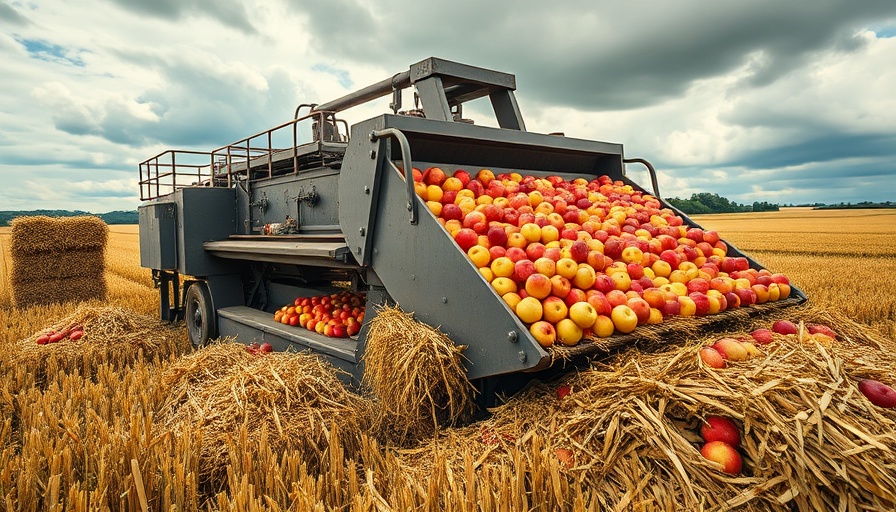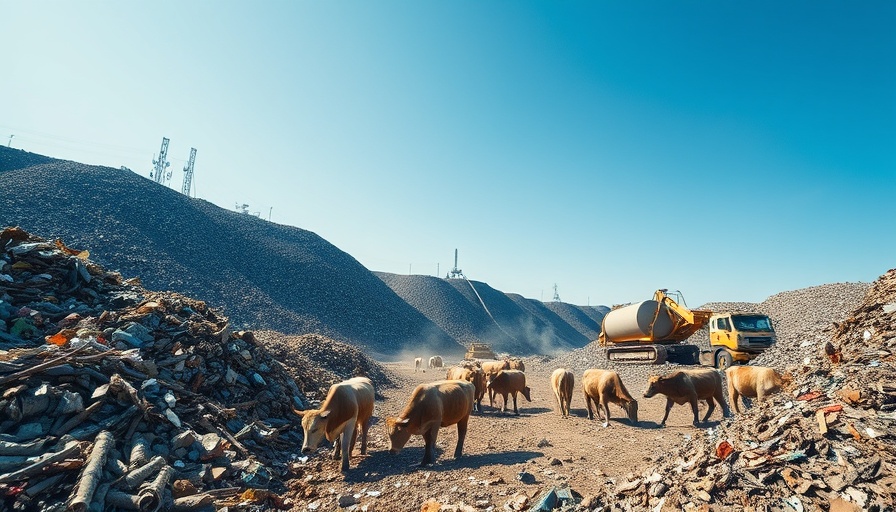
Why Recycling Food Waste Matters More Than Ever
As highlighted by recent research, nearly a third of the food produced for human consumption never reaches our plates. This staggering statistic not only highlights the issue of food security, but it also underscores the immense waste of essential resources—land, water, and energy. The time to shift our perspective on food waste is now. Simple actions like recycling food waste through composting, anaerobic digestion, or even refeeding animal waste could significantly reduce greenhouse gas emissions that contribute to climate change.
The Hidden Cost of Food Waste
When food is discarded into landfills, it decomposes anaerobically, generating methane—a greenhouse gas 80 times more potent than carbon dioxide over a 20-year period. Zhengxia Dou, an agricultural systems professor at the University of Pennsylvania, calls attention to this unseen threat: "When finished eating, people tend to just toss what’s left. But from the resource and environmental perspective, what happens after actually matters a lot.” It reflects a critical need to transition from a linear 'take-make-dispose' model to a circular agrifood system, wherein food waste is valued as a resource rather than a burden.
The Impact of Recycling Food Waste
The study analyzed data from 91 field studies in 29 countries, establishing a benchmark for how implemented recycling strategies can reshape food waste management. The results were compelling—recycling food waste can lead to drastic reductions in GHG emissions. Dou emphasized, "Anything you can do with food waste recycling is better than sending it to a landfill.” Even countries with colossal waste outputs, like the U.S. and China, can benefit incredibly from adopting these methods.
What Can We Do?
The change starts small, right in our homes. Simple practices such as composting kitchen scraps, reducing food waste through meal planning, and donating excess food can make a difference. By personally engaging in food waste recycling, whether through composting at home or supporting local initiatives like community composting programs, individuals can play a pivotal role in combating climate change and supporting sustainability.
Embracing Community Solutions
Communities can come together to adopt food waste strategies, enhancing both environmental sustainability and social well-being. For instance, local governments can establish educational programs to raise awareness about food waste management. Initiatives that connect food producers, consumers, and waste management can elucidate how impactful collective small actions can be.
In Conclusion: Our Role as Stakeholders
The research underscores a powerful message: we are all stakeholders in the global food system, and our actions can reverberate through it. By recycling food waste, not only do we contribute to mitigating greenhouse gas emissions, but we also embrace a more sustainable and conscious way of living. The next time you’re about to toss food scraps, remember that we have the power to shift the narrative, transforming waste into resources, thus creating a healthier planet.
 Add Row
Add Row  Add
Add 



Write A Comment